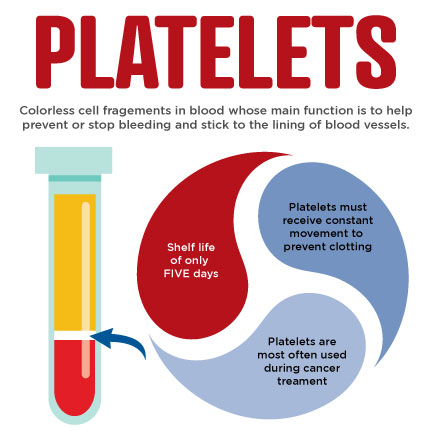The Benefits of Donating Platelets
Platelet donation is a remarkable act of generosity that can make a significant impact on the lives of patients in need. In this article, we will explore the numerous benefits of donating platelets and shed light on the importance of this selfless act.
Enhancing Patient Care
Platelets play a crucial role in the clotting process, preventing excessive bleeding and aiding in the healing of wounds. Unfortunately, many medical conditions and treatments can cause a decrease in platelet count, leading to a higher risk of bleeding complications. By donating platelets, you directly contribute to the well-being of patients undergoing surgeries, cancer treatments, and those with blood disorders.
Supporting Cancer Patients
Cancer treatments, such as chemotherapy, often result in a decrease in platelet count. This reduction can lead to severe bleeding, making it challenging to manage the disease effectively. By donating platelets, you provide a lifeline to cancer patients, as the platelets you donate can help them continue their treatment without interruptions.
Emergency Situations
In emergencies, every second counts. When accidents or traumatic events occur, platelet transfusions are often required to stabilize patients and prevent life-threatening bleeding. By donating platelets, you ensure that these vital resources are readily available to save lives in critical situations.
Platelet Compatibility
Platelets are not a one-size-fits-all solution. Different individuals require platelets that are compatible with their blood type and specific antigens. By donating platelets, you increase the chances of finding a suitable match for patients in need, particularly those with rare blood types.
Personal Health Benefits
Donating platelets not only benefits patients but also offers advantages for the donor. Regular platelet donation can help maintain healthy platelet levels in your blood, reducing the risk of certain cardiovascular conditions. It also provides an opportunity for health screening, as each donation involves a thorough medical examination.
Community Engagement
Platelet donation is a powerful way to engage with your community and make a positive impact. By donating platelets, you join a network of selfless individuals who are dedicated to saving lives and improving the well-being of others. Your contribution can inspire others to follow suit, creating a ripple effect of compassion and generosity.

Donating platelets is a noble act that has far-reaching benefits. From enhancing patient care and supporting cancer patients to aiding in emergencies and promoting personal health, the impact of platelet donation cannot be overstated. By choosing to donate platelets, you become an essential part of a collective effort to save lives and make a difference in the world.
Frequently Asked Questions about Platelet Donation
1. What are platelets and why are they important?
Platelets are small cells in the blood that help with clotting. They are crucial for preventing excessive bleeding and promoting healing.
2. How is platelet donation different from regular blood donation?
During platelet donation, a machine collects only the platelets from your blood and returns the rest of the components to your body. Regular blood donation collects whole blood, including red cells, plasma, and platelets.
3. What are the benefits of donating platelets?
Donating platelets can potentially save lives by helping patients with cancer, organ transplants, and other medical conditions that require platelet transfusions. It also promotes the production of new platelets in your body.
4. How often can I donate platelets?
You can typically donate platelets every 7 days, up to 24 times a year. However, this may vary depending on your location and donation center.
5. Are there any health risks associated with platelet donation?
Generally, platelet donation is safe. However, some donors may experience side effects such as dizziness, bruising, or tingling in the fingers. These usually resolve quickly.
6. How long does a platelet donation take?
A platelet donation session usually takes around 2 to 3 hours. The collection process itself takes about 90 minutes, while the rest of the time is for preparation and recovery.
7. Can I donate platelets if I have a medical condition or take medications?
It depends on the specific condition and medications. Some medical conditions or medications may temporarily or permanently defer you from platelet donation. It’s best to consult with the donation center or your healthcare provider.
8. Can I donate platelets if I have recently received a COVID-19 vaccine?
In most cases, individuals who have received a COVID-19 vaccine can still donate platelets. However, it’s important to check with the donation center for any specific guidelines or waiting periods.
9. Can I eat or drink before donating platelets?
Yes, it’s recommended to have a light meal and stay hydrated before platelet donation. Avoid consuming fatty foods or alcohol immediately before the donation.
10. Are platelet donations tax-deductible?
In some countries, platelet donations may be tax-deductible. It’s advisable to consult with a tax professional or check local regulations for more information.




